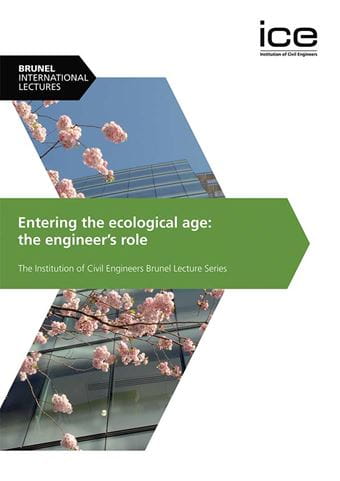Bringing together Arup director Peter Head’s landmark lectures on sustainability at the Institution of Civil Engineers.
In a series of landmark lectures for the Institution of Civil Engineers (ICE), Arup director Peter Head explores how the world can begin to make the transition towards an ecological age of civilisation.
“Human development is following a dangerously unsustainable path globally,” he explains. “Waves of investment in low and middle income countries are accelerating this problem because they are following an unsustainable model. Our urban areas and methods of food production consume land and non-renewable resources inefficiently. But we can do something to turn the situation around: we can move towards an ecological age.”
Peter’s Brunel International Lecture explained how urban centres can be developed and retrofitted to improve resource efficiency while maintaining or improving quality of life. Ecological footprint analysis is used to show how we can move towards the goal of environmental sustainability, setting out a vision of life in a sustainable community of the future.
The ICE established the Brunel International Lecture in 1999 in memory of Isambard Kingdom Brunel. Since then a variety of topics ranging from infrastructure and technology for the third millennium to sustainable development, poverty alleviation and water for the third world have been covered.
Translations of the 'Entering the Ecological Age: the Engineer's Role' report, with region-specific data
-
Entering the ecological age, Arabic (PDF / 3690kb)
-
Entering the ecological age, Chinese (PDF / 2463kb)
-
Entering the ecological age, Korean (PDF / 3603kb)
-
Entering the ecological age, Spanish (PDF / 2624kb)
-
Entering the ecological age, executive summary, Polish (PDF / 217kb)
